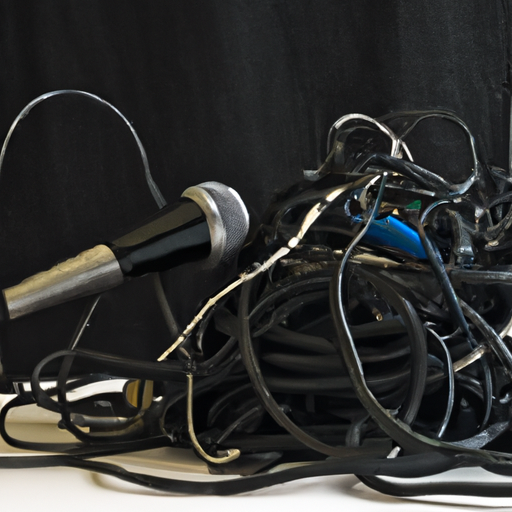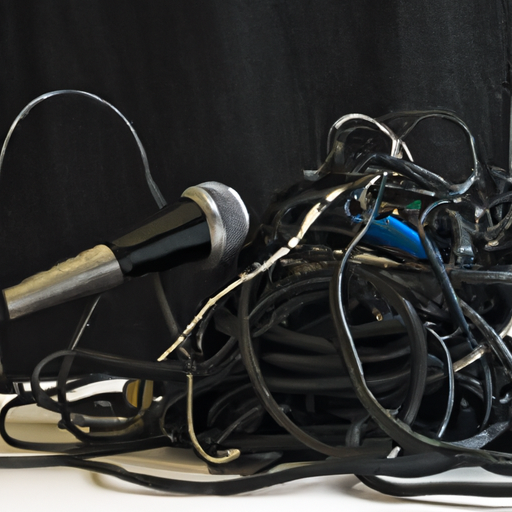If you’re someone who loves the convenience and efficiency of voice-activated smart speakers, you might be wondering about the potential privacy risks they pose. The rise in popularity of these devices has sparked a wave of concerns regarding the protection of your personal information and conversations. In this article, we will explore the various privacy concerns associated with voice-activated smart speakers, shedding light on the potential risks and offering essential tips to keep your data safe and secure. So, if you’re curious about the hidden complexities behind these seemingly innocuous devices, read on to discover the truth about privacy concerns with voice-activated smart speakers.
Privacy Concerns with Voice-Activated Smart Speakers
In recent years, voice-activated smart speakers have become increasingly popular, with devices like Amazon Echo and Google Home finding their way into millions of homes around the world. These devices offer convenience and ease of use, allowing users to control their homes, search the internet, and play music with just their voice. However, the widespread adoption of these devices has raised numerous concerns regarding privacy and data security.

Data Collection and Storage
One of the primary concerns with voice-activated smart speakers is the collection and storage of user data. These devices are constantly listening for a wake word, such as “Alexa” or “Hey Google,” and once activated, they record and store voice commands and queries. While this data is primarily used to improve the device’s performance and accuracy, it raises questions about the types of data being collected and how it is being stored.
Potential Breaches and Cyber Attacks
With the increasing reliance on smart speakers for everyday tasks, the potential for data breaches and cyber attacks becomes a significant concern. These devices are connected to the internet, opening them up to vulnerabilities that could allow hackers to gain unauthorized access to personal information. This could include sensitive data such as addresses, credit card information, or even recordings of private conversations.
Third-Party Data Sharing
Another privacy concern is the sharing of user data with third parties, such as advertisers or app developers. Smart speaker manufacturers have been known to share user data for targeted advertising purposes, raising questions about the control users have over their own information. Additionally, there have been instances where personal data has been sold to third parties without the explicit consent of the users.
Misinterpretation of Voice Commands
Voice recognition technology is not perfect, and there have been cases where smart speakers have misinterpreted voice commands or responded to unintended triggers. This can lead to potential privacy implications, as the device may capture and store unintended audio recordings, including private conversations. Users also face the risk of their voice commands being misinterpreted and executed differently from what was intended.

Always-On Listening
One of the most significant concerns with voice-activated smart speakers is the concept of “always-on” listening. These devices are constantly monitoring their surroundings for the wake word, which means they are essentially recording and processing audio data at all times. This raises concerns about the possibility of these devices intercepting private conversations or recording sensitive information without the user’s knowledge or consent.
Accidental Activation
Accidental activation of smart speakers is another privacy concern, especially in shared living spaces. Users may unintentionally trigger the device by uttering words that sound similar to the wake word or by mentioning it in a conversation. This accidental activation can lead to unintended audio recordings and potential privacy breaches, as well as raise concerns about the device’s ability to distinguish between intentional and unintentional commands.

Lack of Transparency
One of the challenges with voice-activated smart speakers is the lack of transparency surrounding data collection and usage practices. Many users are unaware of what types of data are being collected and how it is being used by the manufacturers and third parties. The lack of clear disclosure and control over data sharing raises concerns about the extent to which users can protect their privacy and make informed decisions regarding the use of these devices.
Children’s Privacy
The privacy risks associated with smart speakers extend to children as well. These devices may expose children to inappropriate content or interactions if not properly regulated. Moreover, children’s personal information may be inadvertently collected and shared without the knowledge or consent of parents, posing risks of identity theft and online predation.

Intrusion of Personal Spaces
Smart speakers are often placed in private spaces, such as bedrooms or living rooms, where private conversations and personal information may be shared. The constant monitoring and recording capabilities of these devices may intrude upon these personal spaces, leading to concerns about the lack of privacy and the potential for unauthorized access to sensitive information.
Legislation and Regulatory Challenges
Lastly, there are significant challenges in developing and enforcing legislation and regulations surrounding voice data privacy. Privacy laws and regulations vary across countries and regions, making it difficult to establish a consistent framework for protecting users’ privacy. Furthermore, the fast-paced evolution of smart speaker technology and the complexities involved in data collection and sharing pose challenges for regulatory bodies to keep up.
In conclusion, while voice-activated smart speakers offer convenience and functionality, it is crucial to be aware of the privacy concerns associated with these devices. Data collection and storage, potential breaches and cyber attacks, third-party data sharing, misinterpretation of voice commands, the always-on listening feature, accidental activation, lack of transparency, children’s privacy, intrusion of personal spaces, and the need for effective legislation are all areas that demand attention to ensure that users’ privacy is protected in the ever-expanding realm of voice-activated smart speakers.

